European Forum Alpbach 2024




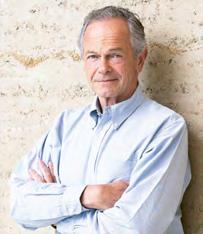
Andreas Treichl EFA President

Feri Thierry EFA Secretary General
In the light of the decisive election year 2024, the purpose of the European Forum Alpbach is today more important than ever: We create a space for reflection and provide the place to spark action. We encourage open and sincere dialogue by inviting different perspectives. And we bring together European key actors with the next generation. Why do we do this? To strengthen Europe as a responsible force for good.
In this Panorama issue you are going to find a compilation of topics that we look forward to discussing with you at this year’s EFA event in Alpbach. Let us seize this make-or-break moment in time – the Moment of Truth is now !


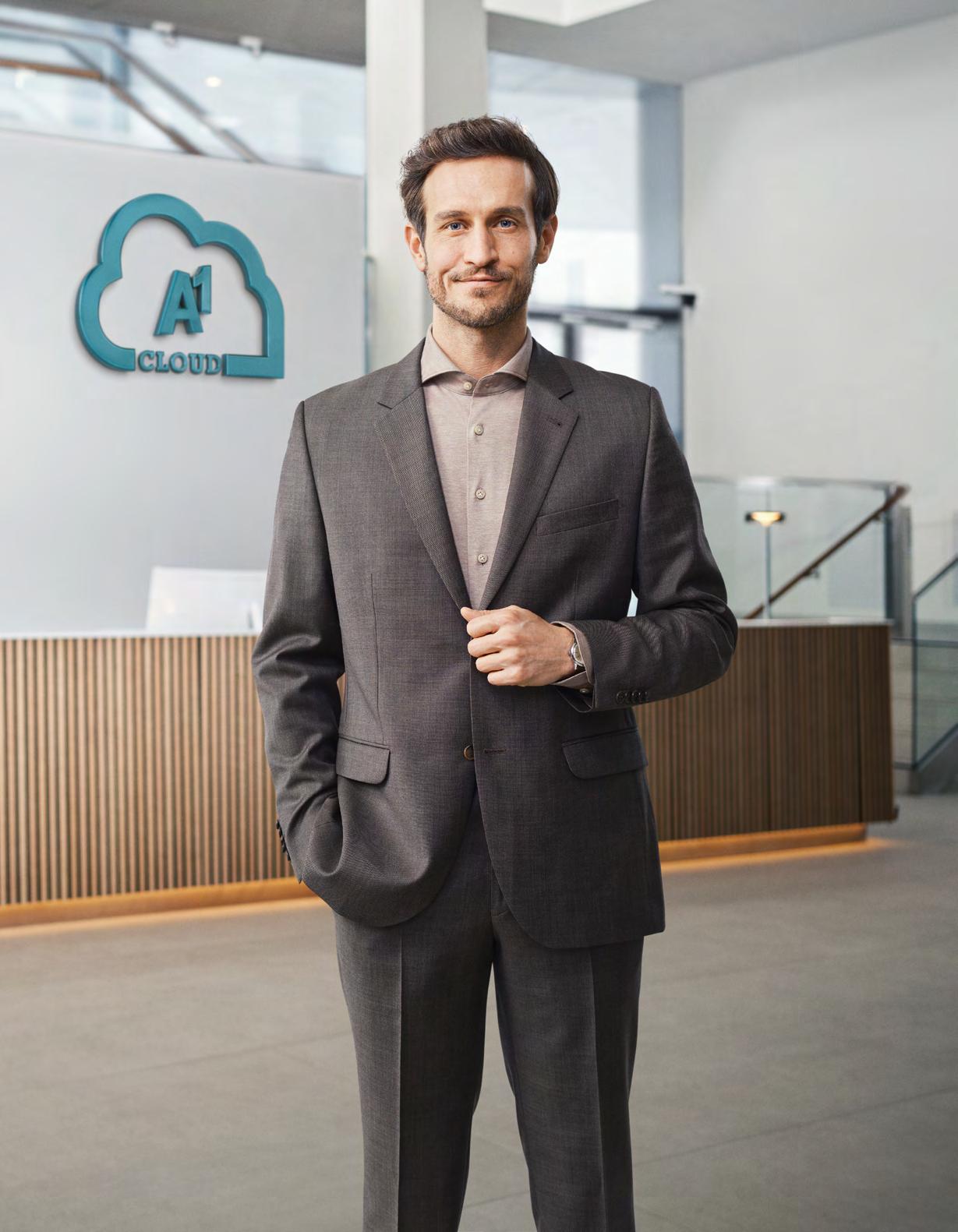
Egal, wie weit Ihr Business-Netzwerk reicht, mit A1 bleiben Ihre Daten in Österreich. Vertrauen Sie bei Ihren Unternehmens-Daten auf das große Know-how von A1.
Mehr Infos unter A1.net/cloud-services

A1. Aus Verantwortung für Ihr Business.

sECuRItY
35 2024 - Europe at a Crossroad by Arancha González
36 Under the Countryside Rainbow by Florian Niederseer
38 I am a Migrant and so are You Forum Alpbach Network (FAN) Voice 41 Join Us in Shaping a Strong and Democratic Europe
42 Our Partners: Key to EFA’s Success
Publisher European Forum Alpbach, Non-Profit Association Franz-Josefs-Kai 13/10, 1010 Vienna Tel.: +43 1 718 17 11, forum@alpbach.org
Concept Jung von Matt, Das Studio
Layout Lucy Giller, Little Gem Studio
Print Production Lindenau Productions GmbH
Editor EFA Team
MarkusTordik (3), Elisabeth Mandl (3, 13, 29), Eileen Barroso (11), 360UPF (16), Moritz Kellner (16), Zsolt Marton (18), Gail's Bakery (21), Wiener Zeitung (28), European Council on Foreign Relations (29), Clément Gibon (35), Stefania Calderara (37), Cristian Noguera (39)
Moment of Truth is the European Forum
Alpbach’s 2024 annual theme. It reflects the crucial decisions that are being made: Over 70 countries with more than half of the world’s population vote in the biggest election year in history. It is a decisive year that has the potential to shake up international relations.
The elections are likely to reveal growing political and social polarisation in Europe, with truth being contested by different groups within our societies. Attempts of disinformation and foreign interference will accompany many elections, undermining trust in our democratic institutions. Tensions are exacerbated by ongoing wars, cost of living crises and climate disasters. This polycrisis will put Europe’s democracy and cohesion to the test. 2024 is the moment of truth, with the future of the continent at stake. If Europe does not stand united and act decisively, the threat of disintegration looms large.
EFA24’s thematic tracks focus on four main challenges of our time.
Geopolitical realities are shifting. Climate-fueled damages to the ecosystem and to our societies are increasing. Environmental insecurities and threats to livelihoods grow. The global community must urgently increase its mitigation and adaptation and share the responsibility of combating the twin crises of climate and biodiversity. It must find common ground to accelerate the transition towards a just net-zero future through systemic change, transformative solutions and social and technological innovation.
Europe’s post-war success story has stalled, leading to declining competitiveness, economic imbalances and rising social inequality. We must address our economic and security dependencies and pursue the ecological and digital transformation. Dynamic and integrated capital markets, along with focused public administrations and budgets, are crucial for financing these changes. Policies that empower citizens to use financial products need to be ramped up.
Europe finds itself in a challenging geopolitical situation characterised by the intensifying competition between the United States and China, the erosion of multilateralism, and a trend towards multipolarity. The Russian war of aggression against Ukraine marked a turning point for European security. It should serve as a wake-up call to finally take security and defense more seriously and to reduce dependencies in critical areas.
After decades of expansion, democracy is in decline. We are witnessing polarisation and the rise of authoritarian politics. Disinformation and deep mistrust in governments and the media are crucial factors, just as inequality and the failure to deliver on social advancement. Democracies need to become more resilient and inclusive. Global alliances of democratic states, civil society and experts need to find solutions suited to today’s information and technology context.
The latest addition to POLITICO’s Playbook family
“Berlin Playbook” is our must-read briefing, in German, anchored by POLITICO’s Gordon Repinski. The latest addition to our Playbook line up is dedicated to unraveling the intricacies of German politics, all while keeping the day’s geopolitical context in mind. Lands in inboxes every Monday to Friday at 7:00 a.m. Sind Sie schon dabei?

GORDON REPINSKI
JETZT ABONNIEREN

Truth is a contested concept – especially when political polarisation becomes rampant. Thus, efforts to rebuild democratic resilience have to face disinformation and the downsides of artificial intelligence.
Read EFA voices on current developments, a performative election campaign and a hands-on approach to youth democratic engagement
Anya Schiffrin
Information, truth and the 2024 elections have been widely discussed this year as politicians, journalists, analysts and scholars have focused on the potential for disinformation and deep fakes to influence voters and to affect outcomes. As we keep being reminded, some 50% of the world’s population live in countries or regions that are/were having elections in 2024, including the 27 EU Member States and their Parliament’s election in June.
The shock of the popular support for populists and authoritarians in 2016, the vote for Brexit and the rise of Bolsonaro, Trump, Modi and Orbán have put much of the world on edge wondering what will happen this time around. Already there have been cases of false videos on TikTok: the faked phone call to voters in New Hampshire that in fact was not from President Biden, deep fakes of the Pope, and lies about immigrants in Slovakia’s parliamentary elections in the fall of 2023. Additionally, there are reports of
propaganda from Russia and China on the conflicts in the Middle East and Ukraine, as well as disinformation spreaders making money from purveying false claims. The list is endless.
How is 2024 different from previous years? In the period after 2016, Oxford scholars such as Philip Howard and Samantha Bradshaw, among many others, focused on »computational propaganda« which they defined as »the use of algorithms, automation and human curation to purposefully distribute misleading information over the internet. «
First, experts are worried about the democratisation of mis-/disinformation. Thanks to generative AI , »the networked
»Thanks to generative AI, ›the networked nature of the internet ecosystem makes it possible for almost anyone with access to a connected computer to become an amateur propagandist.‹«
nature of the internet ecosystem makes it possible for almost anyone with access to a connected computer to become an amateur propagandist « , says scholar Samuel Woolley in his recent book »Manufacturing Consensus« . Creating deep fakes has become easy, quick and cheap and Woolley notes that there are now ecosystems of government troll armies and bots that talk to each other as well as to individuals. Because of generative AI , massive amounts of artificially generated content are flooding the internet.
Second, there is the potential for narrow targeting of individuals. » With generative AI , technologists see a world where information is narrowly targeted and delivered to individuals based on their preferences and consumption patterns. « The super-powered TikTok algorithm is an example of what we can expect in the future as these tools become more and more sophisticated. Third, the takeover of Twitter (now X) by Elon Musk has emboldened tech companies to resist regulation.

The EFA 24 arts and culture programme invites participants to cast their vote
Theodora Danek
There was a time, a decade or so, ago, when much of fiction was awash with dystopias. It seemed like all our imagined worlds were horrible. Zombies. Reproductive rights. Supersurveillance. Superflu. It was all there. It was all somewhere in real life, too, of course, since the kernels of fiction are always based on something that already exists somewhere, in some form. But if the hold of dystopia on our cultural production has waned somewhat, now, as the climate (long-term weather, political, interpersonal) gets hotter and more toxic, we’re all exploring our fears in real life, every day. And if the present is scary, the future can be downright terrifying. Especially if you’re young. A 2021 survey of 16-25-year-olds in ten countries found that three quarters thought the future was frightening, and two thirds were very or extremely worried about climate change.
»With generative AI, technologists see a world where information is narrowly targeted and delivered to individuals based on their preferences and consumption patterns.«
Musk’s firing of content moderators and his refusal to reply to EU regulators seeking information has inspired other platforms to reduce transparency. TikTok restricted its Creative Center tool, previously used to analyse trend popularity and hashtags. Facebook decided to close down CrowdTangle, which helped understand engagement and patterns of spread of online content. In South Africa, press freedom groups trying to get the major social media platforms to reply to
questions about how they are preparing for the elections have received no answers at all from TikTok and X and only pro forma responses from Meta and Google. Regulation, media literacy and increased content moderation (also using AI) can help address the problems of online mis-/disinformation and deep fakes – but that will be slow to come. In the meantime, 2024 will be a decisive year for the world, affecting global politics for years to come.
Part of the fear lies in inevitability. More than a decade ago, Franco ‘Bifo’ Berardi suggested that »the future no longer appears as a choice or a collective conscious action but is a kind of unavoidable catastrophe that we cannot oppose in any way« . We’re caught staring at a series of catastrophes, like Walter Benjamin’s Angel of History, but stuck in the endless present instead of turned towards the past – Peter Klee’s famous angel, now scrolling on a smartphone. No wonder, then, that we might succumb to a learned helplessness, where we seem to have lost the ability to imagine the future, nor are we able to picture ourselves as active participants in it.
What do we do with this? Despair is not an option, and the way to beat hopelessness is to band together with others and overcome the isolating loneliness of anxiety. The EFA24 arts and culture programme takes a step into the unknown: participants reflect on their agency and are reminded that imagination is a muscle that needs to be trained. In a collaborative project with the Vienna Design Week, seven designers and thinkers were invited to co-create an election campaign that puts utopian visions to the vote for all event participants. The campaign is complemented by a series of artistic workshops and performances led by musicians, actors, dancers, designers, writers and thinkers.
»In a collaborative project with the Vienna Design Week, seven designers and thinkers were invited to co-create an election campaign that puts utopian visions to the vote for all event participants.«
Why utopia?
Utopia, in this context, is not to be thought of as a destination, a place or a goal; utopia is a method of thinking consciously about, and questioning what Ruth Levitas has called »the models we carry around in our heads of how the world does and/or should operate« . During the EFA24 event, participants of the arts and culture programme are encouraged to move, think, listen and feel themselves into a different tomorrow; to learn methods and tools from different artistic practices that might quite literally give them pause and enable them to imagine a better world.
Why an election?
Election campaigns are always performative. Every election campaign needs posters, slogans, election rallies, a beginning, a middle and an end. Even the results on election night, however, are only a part of an ongoing process. Much like the creation of utopias, elections, too, are speculative projects: They require imagination from all participants to picture what might happen after, and trust in a process with an uncertain outcome. As science-fiction author Kim Stanley Robinson writes, »there are no happy endings! Because there are no endings« .
In the much-discussed global election year 2024, this utopian election is explicitly staged as a performance, a ritual, a celebration – as art. Our election of utopias is not a simulation or a dry-run for something that might happen. It is an exercise in imagining and a reflection on the language and meaning of our democratic mechanisms. There are good arguments for performing something until it becomes real; there are also good arguments for performing something that might never become real, but that will broaden our understanding of what we want and how we might get there. Everyone is invited to speculate, to dream, to consciously give themselves over to utopia as a »third space« , as Gabriel Roland, director of the Vienna Design Week, calls it, where we briefly press pause on real life, with all its limitations and pragmatism, and focus on expanding what we believe is possible.
There is no conclusive answer to why we are so obsessed with the darkest timeline, whether it is imagined or a potential future. It is a deliberate alternative to the awful imaginary worlds we surround ourselves with. Dystopias remain an oddly attractive proposition. Maybe fiction, much like reality TV, is simply a neat way of exploring and confronting our deepest fears, whatever they may be: Your rights are being taken away by a totalitarian government; hell (New York) literally freezes over; you’re trapped on a so-called »Love Island« with twenty sex-crazed English lads and ladettes. Fiction, and art, is an emotional safe space for catapulting you into the unsafest space imaginable, where you can test your response to whatever joys and horror await.
Whether they are dystopian or utopian.
A place to embrace uncertainty and an open process where there are no results.
»Elections are speculative projects: They require imagination from all participants to picture what might happen after, and trust in a process with an uncertain outcome.«
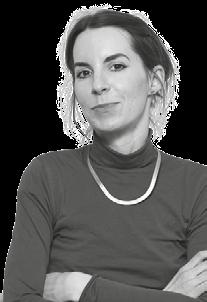
short bio Theodora Danek manages the Arts & Culture programme at the European Forum Alpbach.



Thomas Garnier & Pol Villaverde
Is there a secret sauce for increasing youth turnout in elections? Many have searched it – starting with the European Parliament with its #UseYourVote campaign – but few have found an answer. Even in 2019, the Parliament praised itself for the highest youth turn out in decades… at 42%. So when the winning team of last year’s Alpbach IDEAS decided to »help young first-time voters take centre stage at the 2024 EU Elections«, it quite sounded like yet another youth project with very limited real impact. The authors of this piece – who first met on their last bus ride from Reith to Alpbach at the EFA23 annual event – did not forecast working on a pigeon called »Palumba« for the following ten months either.
Re-inventing a wheel that already works. Voting Advice Applications (VAAs) have existed for decades. They have not always been digital tools, as our grand-parents kindly reminded us: news-
»If this cute pigeon can’t help you vote in June, nothing will.«
campaigns in western democracies and take shape almost exclusively online. Their main feature: »depolluting the epistemic environment « of elections by bringing the conversation back to issues and policies – rather than candidate likeability – appeals to millions. In some countries, up to 50% of voters use a VAA the days before voting. Some papers argue that abstention decreases by a few percentage points thanks to them. Such apps, though, have mostly been designed by researchers and their design and language could sometimes feel slightly dry to a younger non-academic audience far from the Brussels bubble.
What if a VAA was designed as a cocktail of features inspired from dating apps and social media platforms that young people share? What if they translated unappealing policies into plain language? What if they had a sarcastic selfaware branding strategy with a cute pigeon as a figurehead?
papers used to provide a form in which voters could cross their views on a few key statements and get an orientation for who to vote for days later in the mail. VAA s are now a staple of election
»If this cute pigeon can’t help you vote in June, nothing will. « The co-authors of this article are writing this from the eye of the storm. It’s May 6 – one month before the elections – and in just a few days, a year’s worth of work for the association of former scholarship holders will be put to the test when the first pan-european non-partisan VAA designed specifically for young first-time voters goes live in all EU Member States and in 26 languages. The stakes are high: no VAA has ever had less than hundreds of thousands of users, but no VAA has ever been crafted with viral features targeting
»Voting is a social habit. The earlier people start voting, the more consistently they’ll vote in the long-run. Democracies thrive when more and most young people vote.«
the Commission called on the American artist to save the elections. We did everything to make Palumba burst the usual bubbles and go in the hands of as many millions of young Europeans as possible before sixth to ninth June 2024.
younger generations. This would have never been possible without the help of 120+ volunteers from all across Europe and a network built from scratch of dozens of partner organisations, institutions, youth councils, foundations, and think tanks.
Users »swipe« right for statements they agree with and left for the ones they dislike. For the sake of nuance and less polarisation, they have options for milder opinions and a neutral option. They get context: why is the topic they’re swiping on important? Why is it relevant for the elections? All statements are curated from suggestions of youth organisations, proofread by a pan-European Scientific Council independent from candidates and parties, and evaluated by an opensource algorithm.
Voters then get matched with the Parliament group that best supports their priorities (connecting them to the European level of the conversation first!), discover the most compatible local lists at their national level, while learning about their voter profile and themes they care most about. Each results screen is shareable in the form of social media » Stories«, echoing to the famous »Spotify Wrap« format.
Ultimately, we hid plenty of soft Taylor Swift references in the app, after
Do we actually want more young people to vote? A recent Financial Times article reported that Gen Z is not one but two generations: »a new global gender divide is emerging. « We can explain the contraditions of the youth vote turnout when we acknowledge that overall young men tend to vote more conservative and young women along with other gender identities are likely to vote more progressive. Is it not dangerous then, scaling up a tool which could empower millions of climate change deniers, conspiracy-believers, and Trump/Putin supporters to do their »Far-Right Coming Out« at a decisive moment for democracy, security, solidarity, and our response to the ecological crisis?
Of course, it still makes sense, because this segment votes already. But for the others that have lost faith in a system in which we vote once every five years and who turned to volunteer work in NGos or activism instead: with a VAA they could focus on specific issues rather than the personality of candidates, and realise that there are parties who support their ideas. It might make them consider voting eventually. Voting is a social habit. The earlier people start voting, the more consistently they’ll vote in the long-run. Democracies thrive when more and most young people vote.
Palumba started with Alpbach IDEAs and became one of the largest-scale abstention reduction projects in the Eu this year, »with the power to actually impact the elections« said Jaume Duch –Director of Communications and Spokesperson of the EU Parliament at our launch event in Barcelona. You tell us: Did Palumba find some of that secret sauce?

Thomas Garnier advises sustainability solutions on Media Ethics matters with a by-design approach to key global issues: impacts on planetary boundaries, DEI , and data protection/right to privacy. Co-President of Club Alpbach France and TEDx Curator, he’s the Secretary General and R&D Coordinator of the Palumba EU association.

Pol Villaverde is a PPE graduate from Barcelona, pursuing a Dual Master’s Degree in Public Policy & Administration at SciencesPo and Columbia University as a La Caixa Foundation Fellow. He’s a social + digital entrepreneur and the President of the Palumba EU Association
A sustainable future can only be reached through a green and just transition. Thus, humanity has to stay within planetary boundaries while at the same time pursuing climate action without borders.
EFA contributors explain participatory ways of climate governance and examples for local, community-driven environment policies.
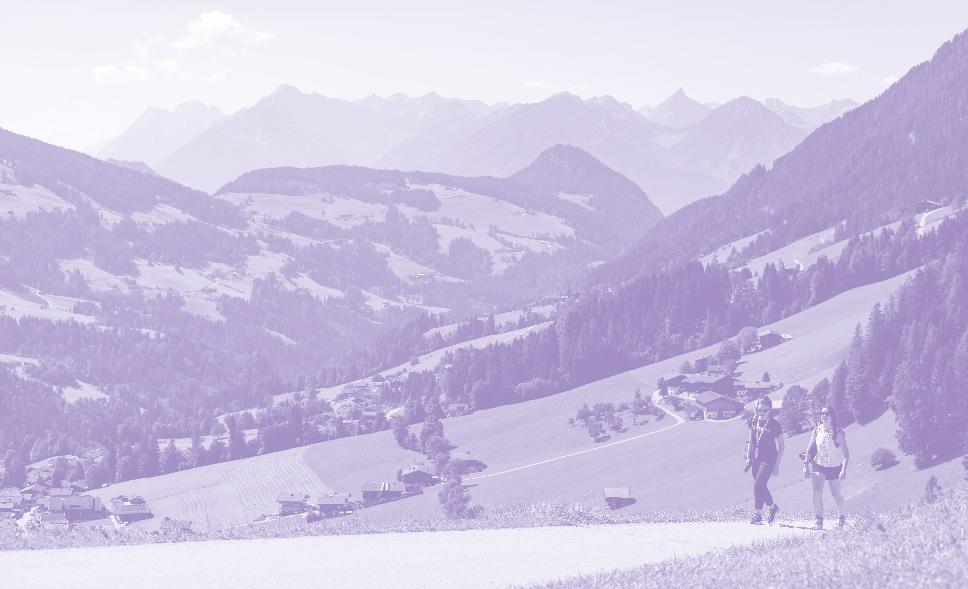

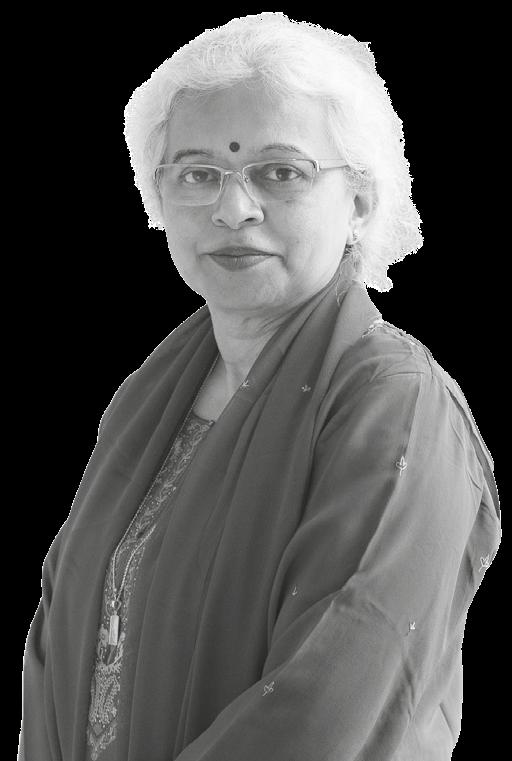

Since we are in a historic election year, it is a moment of truth for the future trajectory of climate policies. How do you see the European Union’s future role in global climate action?
ls (lEEnA sRIvAstAvA) From an Asian perspective, we look at the EU as one of the key drivers of climate action, more than even the United States. There is a higher degree of climate sensitisation in the EU as compared to other developed parts of the world. I also believe that the regulatory environment here is significantly stronger than elsewhere and is normally ahead of the curve.
»There will obviously be winners and losers in the transition to a zero-carbon path – we need to ensure a softlanding approach for those who might lose from this transition.«
—LEENA SRIVASTAVA
I believe that industry, in general, and the private sector in particular, need to become part of the social contract which exists between governments and the people. And by that I mean that industries’ future license to operate should be determined by this extended contract. The EU is very well placed to come up with out-of-the-box thinking along these lines and to influence developments, in Europe but also in the rest of the world.
IC (IEvA ČEsnulAItYtė) The EU is well-placed for collaborative decision-making involving citizens through advanced participation mechanisms like citizens’ assemblies. Over the past several years the EU has been building competencies and frameworks for such decision-making. Many citizens’ assemblies on climate have happened in EU countries, and my hope is that these new forms of governance are going to pick up much more and will start tackling more ambitious climate targets. Some EU countries have even embedded citizens’ assemblies in more permanent ways, including here in Austria in Vorarlberg, Paris, Brussels and other places.
ls There will obviously be winners and losers in the transition to a zero-carbon path – we need to ensure a soft-landing approach for those who might lose from this transition. I don’t think that conventional subsidies or incentives systems serve this purpose.
IC I do think that citizens’ assemblies are well suited for tackling climate matters. They can help breaking political deadlocks and making decisions that require long-term solutions that go beyond electoral cycles. When citizens are given a meaningful way of participating, they are often ahead of politicians. Assemblies also increase public understanding – and by extension acceptance of climate policies, they create legitimacy and consent for stricter measures, developed by citizens themselves.
The main challenge is to ensure that recommendations are implemented. This can happen by involving journalists and the media into the process for higher accountability, but also by making sure to secure commitment from politicians and policy-makers in advance of an assembly.
ls While we are addressing the EU in this conversation, climate impacts are not limited to geography. Large-scale projects that are taken up here or anywhere in the world, requiring public consultations, should be analysed from a perspective
of global impacts and must involve world citizens – maybe climate assemblies from across different countries provide a mechanism.
IC It’s exactly what happened in 2021, when a global climate assembly preceded coP that has also demonstrated that it is possible to bring citizens from all over the world to deliver on climate solutions.
ls The distinction as I now see it is that climate assemblies address macro-level policies, but we need a similar mechanism for large-scale projects. Climate assemblies in their current form may not be the right instrument for this.
IC That’s a good point. One of the possible options would be to combine climate assemblies with participatory budgeting, deciding how money is spent and what projects are prioritised. Assemblies aren’t a silver bullet, though, they need to be part of a broader participatory environment and other initiatives.
»Citizens’ assemblies are quite well suited for tackling climate matters.«
—IEVA ČESNULAITYTĖ
Assemblies help people feel connected allowing them to see past their differences and to find broad consensus. This sense of agency is crucial. Participants in assemblies, such as in the French citizens’ convention on climate change that took place in 2019/2020, brought together 150 French citizens. Some changed their lives, became climate activists or ran for local office. They would really step into this sense of agency that I think is needed in democracy, because people don’t necessarily feel they have a voice in decision-making.
How can we succeed in prioritising what unites us over what divides us, especially given the short time frame and the existential catastrophe looming above us?
ls The pessimist in me says we will wait for extreme events – and we will not see enough action until then. The optimist notes our huge investments in new climate-friendly technologies and processes, albeit not yet at the needed level. The market development taking place today is conscious and concerted, with regulations leading to an emerging partnership between producers and consumers, between governments and industry – I think there’s large potential in that. IC I think we should be able to change and to come together over adversities. I feel we’re in a state of frustration and being too technocratic. We should, as a society, make more room for jointly processing the different emotions that this current state of affairs brings us, such as grief, the sadness of what we’ve done to the planet. And then from the state of acceptance and awareness, we must move forward. We should expose ourselves enough so that it inspires us to act, owning our roles and understanding what we have done.
Ieva Česnulaitytė is a Europe’s Futures Fellow at the Institute for Human Sciences in Vienna and the Founding Head of Research and Learning at DemocracyNext. Previously, she was a Policy Analyst at the oEcD , researching innovative citizen participation and open government. short bio Leena Srivastava is currently a member of the UN Technical Advisory Group on SDG 7 (affordable, reliable, sustainable and modern energy for all) and Scientific Advisory Board Member of the European Forum Alpbach. (She is the former Deputy Director General for Science at the International Institute for Applied Systems Analysis ( IIASA ) and former Vice Chancellor of the TErI School of Advanced Studies, New Delhi.)
short bio
Phoebe Tickell
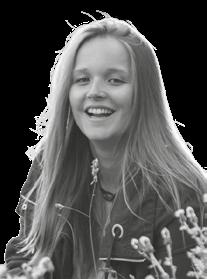
short bio
Phoebe Tickell, is a renegade scientist and social entrepreneur with a radical proposition: that the problems of the world are imagination problems – not resource problems. She is the founder of Moral Imaginations, an organisation that trains others in imagination to solve complex problems.
Imagination is a superpower. Every single change in society started in somebody’s imagination – or in a small group’s collective imagination – from women getting the right to vote, to the civil rights movement or better services for healthcare. Some say this is the quality that makes us most uniquely human – especially our ability to collectively imagine the new.
But imagination is not recognised for what it is – the star stuff of truly radical innovation that builds a new world into being. It is often dismissed as something associated with day-dreaming, fantasy and fiction. If a job candidate put » imagination« on their cV, it would certainly raise eyebrows. As early as school, we are told off for daydreaming, reinforcing from the start that this is a pointless or indulgent activity. What if this carries on throughout life with our organisational and civic systems, constantly narrowing out imagination rather than recognising its true importance?
It’s natural that in a period of austerity, imagination falls to the bottom of priorities. As we face scarcity and insurmountable challenges, people focus on efficiency, on practical deliverables and on getting things done. Imagination is seen as a distraction, something wooly and perhaps relevant for an away day, but not core to the building of new policy and systems.
Imagine if we were wrong: As temperatures hit record level across Europe year by year and month by month, there is a growing sense that we have lost our way. Climate scientists predict that we will reach a heating of 3.3 degrees
by the end of this century, and many young people are unable to see a future with them living in it. A mental health epidemic continues to grow, as polarisation is on the rise, and continues to weaken the social fabric of our democracy. Things have gone wrong – and we need to put them right.
But how do we do that when policies, responsibility, vision and action seem to be stuck in a gridlock? It is natural that in a crisis, the natural way to turn is to fixate on the problems. But arguably this will only ever get you reactive, piecemeal change. How can we solve some of these deep-rooted problems? If we use the same approaches, we will get the same answers we have always got.
The challenges we face are incredibly complex and cannot be solved by any one individual or solution alone. Just like bees search many different locations for the perfect place for their hive before committing to one of them, so, too, the mind needs to wander and explore the different possibilities before choosing a way forward. Our imaginations can be incredibly helpful to paint different scenarios in our head and test them out through simulations.
The famous systems thinker Donella Meadows pointed out that the biggest leverage point to change entire systems is to work at the level of visioning, changing the mindsets, beliefs and values that are causing the problem. What if,
»If a job candidate put ›imagination‹ on their cV, it would certainly raise eyebrows.«
by flexing our imagination muscles, we are able to challenge deep-seated assumptions, and help people expand their horizons and worldviews?
Imagination and day-dreaming may seem like a waste of time, but what if developing that part of our brain is one of the ways we can better use our resources more effectively? Think about the new futures that are not necessarily bound up with what we are currently doing. We may chance upon such alternative futures, but why aren’t we supporting frontline workers and leaders to build their muscle in doing such imagining – a core skill for facing the inherent uncertainty of the future.
It’s a social justice issue that only some people, usually those who have more time, space and resources, are able to exercise imagination in their working lives. At Moral Imaginations, we call this ‘Imagination Justice’, and we strive to create an equalising force, to encourage people from all walks of life to invest the time and energy into growing their imaginations.
In the charity sector and local government, it can feel like the tasks at hand are so important that space for ‘imagining’ and being creative would be taking away crucial time and attention from the task at hand. However, as many of us
»It is not just what about the services we deliver, but how we deliver them. If we want to deliver relational services, we need the time and space to nourish imagination, hope, care and even love.«
have been coming to realise, it is not just about the services we deliver, but how we deliver them. If we want to deliver relational services, we need the time and space to nourish imagination, hope, care and even love.
Unfortunately, the result is that imagination becomes allowed for some people in society – usually people in tech and Silicon Valley – but not for everyone. This needs to change. Imagination is a human right and a source of great joy and innovation – and connection to confidence, direction and vision.
Maybe it’s time to start daydreaming again.
It has become clear to most of us that our industries need to change: the production and use of both energy and materials will have to transform at a revolutionary scale in order to ensure the well-being of life on our planet. As our most physical industry, construction perhaps faces the biggest challenge. Consuming over 60% of the worlds materials1, setting it on a sustainable path demands the utmost of our ingenuity. So what are directions forward?
1 Metabolic. Assessing all materials consumed for building in the Netherlands. https://www.metabolic. nl/ projects/assessing-materials-consumed-for-building-in-the-netherlands/
There are several characteristics in the construction industry that make it particularly challenging for adopting circular economy principles and bio-based materials:
• Fragmented supply chains and multistakeholder collaborations
• Sheer amount of material demand
• Locality and design specificity of construction
There is a fundamental tension in the construction industry: any project is complex and involves many different factors and actors. You cannot change the industry without changing the dynamic between all the stakeholders in-
volved and incorporating the whole supply chain.
Then there is the obvious problem that construction is indeed a physical industry in the sense that it revolves around arranging materials in the physical world. There is a large investment gap between material demand and the supply of renewable biomaterials, limiting their economic viability (for now).
What is perhaps most characteristic of the industry is its locality; all building projects are realised for specific locations with unique demands and contexts. With little standardisation and fifty-year lifespans, there is no perspective for the end of use of the building elements.
Add to this one of the most important recent developments in the industry: rising prices for materials. Projecting this towards the future, we might find ourselves in a situation where the sourcing of materials becomes insecure, too expensive, or even weaponised.
Where does this leave us?
Let us imagine a different future; one in which building materials are our way to sequester carbon, and they are harvested from cities as readymade building elements. What do we need to make this happen?
I think there are several perspective changes that will benefit our thinking: for one; we have been so successful at building cities that they have the potential to become an important source of materials. Urban mining is the pioneering practice of finding, assessing, extracting, and reusing materials and building elements for new construction.
This is easy in theory but hard in practice. Because of the locality and uniqueness of existing construction, there is a much greater burden of knowledge for repurposing than there is for new production. And architects need to know that it is available and what they can do with it. We can only make this happen with rapid and radical digitisation.
Second, let us hit two birds with one stone (poor birds, we should change this expression to become animal friendly in the future). One of the great sources of social unrest in the Netherlands is the treatment of farmers. They are forced to comply with yet another set of rules, making it even harder for them to sustain a viable business.


What if we present them with an alternative, better business model?
We can if we dare to move towards renewable and bio-based building materials. Instead of growing food, farms grow buildings! This is completely in line with a vision for largely plant-based diets that do not need vast amounts of land for the feeding of livestock. And, if we do it the right way, we are working on nature restoration at the same time.
Obviously, these visions have complex practical implications. It is only through getting our hands dirty that we get to shape the way we shape our cities. We need abstract and forward looking thinkers with a »pick up the shovel« leadership style. Those who think big and make solutions concrete. But not literally, let’s use wood, bamboo, and yesteryear’s brick facade.
»Let us imagine a different future: one in which building materials are our way to sequester carbon, and they are harvested from cities!«

siders himself a 'philosopher who acts', someone who prefers trying to put grand ideas into practice rather than expanding them in writing. He is a firm believer in the power of creativity and design to solve some of our most pressing problems. He currently works on the Energy Transition in the Built Environment, helping the most vulnerable people get on board with energy savings.
The Climate Track in the Seminars Days at EFA 24
Exchange between generations, disciplines and nationalities is a vital pillar of the Forum. Europe can only be strengthened through mutual understanding, and the Alpbach Seminars ensure this diversity of voices at the annual EFA event. Young people from different backgrounds and locations are summoned for scientific, skills-based and artistic five-day seminars. Thus, the next generation is provided with the opportunity to create strong bonds, takes home food for thought and is encouraged to create substantial impact for a truly European future.
How to best tackle the climate crisis turned out to be the focus of several seminars during EFA24, for example the relation between climate action and democracy across Europe: The respective seminar, led by Felix Creutzig (mcc Berlin), addresses critical challenges and opportunities, using participatory design in order to enhance participants’ engagement in the climate movement. The seminar proposed methods to directly involve citizens in policy-making processes.
»Young people from different backgrounds and locations are summoned for scientific, skills-based and artistic five-day seminars.«
Another seminar by Iain Kerr and Jason Frasca (Emergent Futures Lab) deploys creativity: »Disruptive Innovation and Green Changemaking« aims for social entrepreneurship with the idea of having broad effects on ecological change.
The Alpbach Seminars prioritise interactivity and hands-on learning. Practical experiences and simulations allow for the power of education, dialogue and collaboration to unfold. Cultivating critical thinking, combined with tangible skills, makes each seminar a unique and life-changing experience for its participants.
For current and future leaders who are keen to discover new ideas, grow personally & strengthen their businesses. At the European business conference, current and future decision-makers from all 46 European countries engage with the most innovative minds from business, politics, academia and civil society and discuss current and relevant topics. 27 & 28 November 2024
/Platin Partner Benefit twice! Save 50% with the EFA and Lucerne Dialogue ticket combo.
In the Panorama interview, Kirsten Dunlop, cEo of EIT Climate-KIc, unveils critical strategies to propel the EU’s green transition, focusing on innovative financing and comprehensive systemic reforms.

short bio
Kirsten Dunlop heads the organisation leading the pilot implementation of the EU’s Mission on Climate Neutral and Smart Cities (Net-Zero Cities) as cEo at EIT Climate-KIc , Europe’s foremost climate innovation initiative.
In terms of financing the green transition – what has to happen at EU level during the next two years, so that the 2030 goals goals remain within reach?
KD We cannot continue to think of »green finance« as a sub-sector of core finance. The EU must mainstream the idea of financial systems working towards a sustainable, sufficiency-based economy by applying consistency, ambition and courage.
Firstly, the EU must stay steady on the path set by the EU Green Deal and the Fit for 55 package. We cannot reshape the economy, if the EU gives mixed signals to financial institutions and businesses. It must remain persistent and address inconsistencies and fragmentation in policies.
Secondly, we need to go further and faster via financial innovation. One of the most needed innovations is place-based portfolio financing to support multiple solutions in a specific context, such as cities, regions or value chains. By funding efforts to understand interdependencies, combinations and coordinated effects, we can boost system transformations instead of defaulting to incremental change.
Finally, the EU must find the courage to introduce the true cost of products and services and address perversities in the market. It must remove subsidies from high-emission products and services, such as oil and gas, and achieve greater conditionality and differential pricing to deliberately shape the economy towards regenerative solutions and business models.
In 2009, when it introduced the idea of strategic risk and subsequently systemic risk – and with it prudential and governance requirements for financial institutions considered systemically important (SIFIs) and therefore »too big to fail« (TbTF reforms) – banks and insurers were forced to act. If the FSb were to introduce conditionality for systemically important global value chains (e. g. food, water and energy systems) considered ›too critical not to transform‹, governments and financial institutions would receive the directional signal to move capital more decisively. More broadly, we need to reforge an alliance between science and arts as an absolute priority. Cultural practices and creative stimulus of imagination need to be reintegrated into policy making, civic institutions and industry, to achieve a transformation in our hearts, minds and habits – including a paradigm shift in economics. We need to generate new narratives and new norms that are aspirational, inspirational and relevant to each context.
To reach the EU 2040 climate goals, we will have to finance socio-economic transformations on a large scale. How does the EU need to transform for this?
KD Climate and nature solutions require systemic and dynamic approaches, and effective action needs standards, processes and incentives that are aligned. To unlock large-scale socio-economic transformation, the EU needs to join its own dots, focusing on systemic implementation of policies to allow for greater agility and flexibility in the use of resources and capabilities. Not only does the EU have some of the most advanced policies and climate laws in the world, but it also possesses many of the solutions needed to implement them. The challenge, however, is that these policies are fragmented and sometimes contradict one another. If the EU were to apply systems thinking, European farmers, for example, could benefit from regenerative agriculture, environmental protection and climate finance rather than losing out because disconnected measures result in a concentration of benefits amongst large industry actors.
Learn more
Scan the Qr code to read the full length interview.
Which creative tools or unlikely alliances that are available but underused would you like to see more?
KD I would argue that the Financial Stability Board (FSb) has a key, yet untapped, role to play.
»We need to reforge an alliance between science and arts.«

For future European prosperity, a fully integrated capital market and strong mitigation efforts for economic and social inequalities are overdue. Experts from the EFA community elaborate on how to finance the green transition, on female leadership in finance and on the strategy needed for de-risking from supply chain dependencies.
Monika Rosen, former Head of Research at Bank Austria and now Vice President of the Austro-American Society, is a powerful voice advocating for women in leadership. Her career in finance exemplifies the importance of overcoming doubts and embracing challenges, a message she passionately shares with the next generation of women leaders.
In 1999, a significant merger occurred between Bank Austria and Creditanstalt, Rosen’s former institution. This event set the stage for a pivotal moment in her career. The merging of the asset management divisions prompted a need for new leadership. Despite her qualifications, Rosen initially declined the role of Head of Research due to concerns about integrating an all-male team with significant egos, particularly given the sensitivities of coming from the acquired bank. »I was not afraid of leading the team or not having enough expertise. What scared me was the idea of having to integrate an all-male team with quite a few rather large egos«, Rosen recounts.
Her story often serves as an inspiration during her talks at women’s networks, where she shares insights into the challenges of stepping out of one’s comfort zone. » This is the part that I always tell when I am invited to talk to women’s networks«, she explains, emphasising her empathy with women who hesitate to accept professional offers that push their boundaries.
Encouraged by her husband over a reflective weekend, Rosen decided to accept the leadership position. She returned to her office with renewed confidence and informed her boss of her decision. »Sir, I have reconsidered, I will take you up on your offer and become Head of Research «, she declared. The supportive response of her boss »I expected as much, I have already prepared everything you need to get started « marked the beginning of a successful and transformative twodecade tenure at the helm of the research department.
Now retired, Rosen continues to contribute to the finance community by moderating sessions at the Forum Alpbach in the finance track, sharing her extensive knowledge and experience. She remains actively involved in supporting the EFA initiative »World of Women« , urging women to step up and seize leadership opportunities. » Accepting the challenge was the right thing for me to do, and ladies, may I tell you, it will be for you as well« , she encourages. Her advice to women is straightforward yet powerful: »When asked, say ›yes‹ . « She firmly believes that no man would hesitate in similar circumstances, and neither should any woman.

»Accepting the challenge was the right thing for me to do, and ladies, may I tell you, it will be for you as well!«


In the middle of global crises and geopolitical tensions, Europe’s weaknesses have become clear. Antonella MeiPochtler and Tobias Gehrke discuss the biggest economic security risks for the continent. They stress the need for a proactive and balanced strategy to face these challenges.
The pandemic and the war in Ukraine have shown Europe’s dependencies in critical areas. What are the biggest risks to Europe’s economic security, Ms. Mei-Pochtler?
AMP We focus on dependencies and supply chains, but protectionism is also growing. Europe must balance these risks. China’s dual circulation strategy focuses on both the domestic market and international trade. Europe lacks a similar strategy; we go from one extreme to the other.
Mr. Gehrke, the European Commission issued a strategy and five initiatives to strengthen Europe’s economic security. How do you assess these measures?
tG Economic security has become a leitmotif, which is positive. But the strategy is defensive. We react to existing risks. We need a mindset shift. We need to think about the kind of global economy we want, our position in it, and the resources needed to get there. If you only mitigate risks, you lack a vision for the future.
AMP Absolutely. We need a proactive strategy in at least five areas: security, technology, health, finance, and climate. These are interconnected. Without a Capital Markets Union, we can’t have technology sovereignty. Without technology sovereignty, we can’t have security sovereignty. The foundation is our ability to finance it.
Antonella MeiPochtler is Vice President of the European Forum Alpbach association, international consultant, member of various supervisory boards and successful investor
geoeconomics, focusing on economic security, European economic strategy, and great power competition in the global economy.
What should be the EU’s role in the global economy?
tG We must remain a technology power and maintain industrial assets. We need specific partners for that. We can’t produce everything in Europe, so we need partners with the necessary resources and skilled workforce. We must be strategic in choosing these partners.
AMP I agree. We shouldn’t only do business with those who share identical values. There are multiple views on managing society. We are sometimes trapped in value colonialism.
The EU has failed to conclude trade agreements with Mercosur and Australia. How realistic are the prospects for such agreements, Mr. Gehrke?
tG These trade agreements are unrealistic in the short term, often stuck on issues like cows and cars. However, there are other options. With Australia, the EU is concluding an agreement on raw materials. Instead of large agreements, we should find specific solutions for certain segments.
AMP I agree. We need a pragmatic approach and should embrace »minilateralism« – agreements in specific areas with a limited number of countries based on mutual interests.
China is the elephant in the room regarding economic security. How will the relationship between Europe and China evolve?
tG It will worsen due to structural problems. The relationship was mutually supportive, with Europe innovating and China producing. That’s changing. China is moving up the value chain, substituting European innovations with its own. The geopolitical side is more complex. The technology and trade war will continue, putting Europe in a difficult spot.
AMP We mustn’t emulate the US position. Our foreign policy should be interest-based. There will be areas of common interest and divergence. Pursuing our interests shouldn’t be seen as anti-US . We have our own interests, which diverge within Europe due to different industrial bases.
»We can’t produce everything in Europe, so we need partners with the necessary resources and skilled workforce.«
—TOBIAS GEHRKE
Over five consecutive days, the renowned Alpbach Seminars serve to inspire its participants and equip them for the challenges of the 21st century. Mornings and afternoons cover a comprehensive range of topics that need to be addressed for a strong and democratic European future. The EFA24 seminar programme is directed towards young people to become active citizens. It contains 26 seminars – with contents ranging from scientific exploration to skill
Should Europe prepare for a potential return of Donald Trump by »de-risking« from the US ?
tG The United States’ power and leverage are extraordinary. De-risking from America isn’t feasible. Europe’s position is different than during the first Trump administration because of the war and dependence on US security guarantees. European sovereignty ideas failed under the first Trump administration and will fail now. We need to increase our capabilities, particularly in defense, but pressure will rise to align with the US on China policy.
AMP Trump was a wake-up call for Europe to become more sovereign. European sovereignty is crucial. In terms of security, we can achieve it. Together, we spend more than Russia. Sovereignty will better position us to manage relations with China.
»We need a proactive strategy in at least five areas: security, technology, health, finance, and climate. These are interconnected.«
—ANTONELLA MEI-POCHTLER
development and artistic expression. The Alpbach Seminars anchor around the four thematic tracks of the European Forum Alpbach, one of them being »Finance and Economy« . This track’s content is skillsbased and empirical:
»Finance unleashed – Innovate, Invest, Inspire« by Daniel Bayer (Fingu) is an engaging financial simulation game, treating wealth management in real-time decision-making scenarios. Leading financial experts help participants navigate the financial world with confidence.
With »The Past, Present and Future of Economic Development and Global Inequalities« , Jesus Crespo Cuaresma (WU Vienna) confronts participants with novel data sources and assesses the empirical evidence of global economic
»The Alpbach Seminars provide eye-level discourse, cutting-edge knowledge and participatory, interactive methods.«
development trends. Research frontier methods take into consideration climate change, growing automation and geopolitical tensions worldwide.
Conventional learning aside, the Alpbach Seminars provide eye-level discourse, cutting-edge knowledge and participatory, interactive methods. Communication and problem-solving are practiced, bridging intellect and empathy – the crucial takeaways for a better tomorrow.

















ktacktick





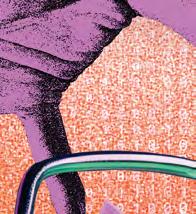





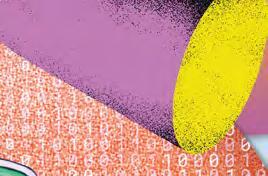








ackticktack t k






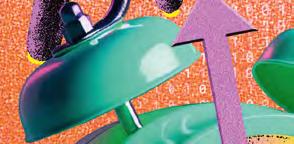











Der Haltung gewidmet.


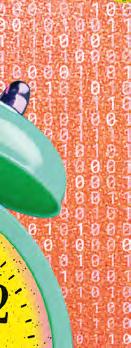









So tickt das Superwahljahr: DER STANDARD begleitet Sie mit Analysen, Recherchen und Hintergrundberichten zu den bevorstehenden Wahlen in Österreich, der EU und den USA . Vertrauen Sie auf Qualitätsjournalismus und akribische Berichterstattung in dieser wegweisenden Zeit. abo.derStandard.at

Since war has returned on European soil, the question of geopolitical sovereignty has been dominating the defence discourse.
Read how Europe needs to further integrate in terms of its single market and EU enlargement. Equally important, minorities’ and migrants’ identity struggles are being addressed by two EFA community contributions.
Arancha González
In June 2024, European citizens went to the polls. This was not just another election. 30 years ago, the world looked like the EU: the economy as the driving force, respect for international law and the convergence of countries around the world. Three decades later, the world has changed: Security has the upper hand and is often invoked to justify violations of the law; and competition has replaced the goal of global convergence. The world has changed and it has put Europe at a crossroad. If it wants to be able to continue shaping international affairs, then it must adapt to a bigger, more hostile world – and this means integrating further. Standing still would lead to irrelevance.
Responding to the most recent crises that the EU has faced – from the 2008 financial crisis, to the coVID-19 pandemic and the war in Ukraine – was only possible through greater integration and solidarity. As governments saw the risks stemming from purely national responses to the pandemic, they mustered the political courage to build the Next Generation EU , pooling fiscal capacity to invest commonly in strengthening the internal market and protecting jobs. More Europe translated into more protection for European citizens and businesses.
But much remains to be done. Europe is vulnerable in the areas where the integration is more deficient or unfinished, where there is no single market: energy, telecoms, defence and capital markets. This is the geopolitical dimension of the single market and the heart of Europe’s strategic autonomy. The fragmentation of the European energy and digital markets severely impact economic competitiveness. While Europe is less unequal and more sustainable than the USA – emitting 1.8 times less carbon per GDP unit generated – it lags behind in terms of growth. Fragmentation of energy markets translates into higher costs for businesses. Lack of scale translates into lower uptake by European small and medium-sized enterprises (SmEs) of transversal technologies in areas such as technologies in the cloud, artificial intelligence, quantum computing or automation.
The return of war on European soil has brought to the fore the need for a common security and defense policy. In the past this seemed a taboo, but today citizens have understood that Europe needs to be prepared to defend its peace project against aggressions that are becoming less and less unlikely. According to the December 2023 Eurobarometer, 80% of Europeans believe greater cooperation in defense is needed – and almost 70% are favourable to increasing military capabilities in the EU .
A more turbulent neighbourhood means Europe needs to invest political capital in the enlargement of the EU , not only because of the European convictions of these countries, but also because it has now become a security imperative for the Union.
Most worrying is the lack of integration of European capital markets. Europe has capital but it doesn’t have scale. European savings fly to other jurisdictions – notably the US – which can offer depth, liquidity and returns. The EU cannot put its financing in the hands of others – otherwise it will not have autonomy to finance its green and

»The EU cannot simply hope for the best. It must start preparing now to assume greater responsibility for its defence.«
technological transitions; and it will not be able to build defence capabilities if it doesn’t integrate its capital markets.
2024 is also the electoral year in the United States. In November, the US citizens will go to the polls in a country where both Republicans and Democrats are turning inwards, returning to a more isolationist international posture. Even under a continued President Biden, US engagement
»The future of Europe is in the hands of Europeans. Let’s act now to make sure we don’t put it in the hands of American voters.«
in Europe is likely to decline. The return of President Trump to the White House will nevertheless pose particular challenges for the EU with volatility, retribution, transactional politics and policies, and even outright hostility to be expected. It only takes to look at some of the proposals being outlined for the Trump 2.0 Presidency: banning of abortion across the country, extension of death penalty, imposition of tariffs across all imports into the US , winding down of climate policies and revamping of fossil fuels or disengagement from NATo
The EU cannot simply hope for the best. It must start preparing now to assume greater re-
sponsibility for its defence and to take bold steps to strengthen the competitiveness of its economy. Europe will also have to work on defending its democracy which is under stress both from outside forces, but also from within, from political forces which promote the violation of the rule of law, the erosion of democratic values and the weakening of institutions. A return of Donald Trump would make arresting the democratic backslide more difficult, in that it would show no interest in pursuing such a transatlantic agenda but also in that the weakening of US democratic institutions is likely to deepen.
There is urgency and the to-do list is clear. With the European elections now behind us, the priority is to implement the reforms. It is a matter of political economy: organising the trade-offs between issues, building coalitions, finding first movers and ensuring a debate with European citizens since, at the end of the day, a further wave of European integration will need to be democratically sustained.
One thing is clear, the future of Europe is in the hands of Europeans. Let’s act now to make sure we don’t put it in the hands of American voters.
Florian Niederseer
Growing up in a small Austrian mountain village akin to Alpbach has shown me how important it is to have a trusting and loving community around you. While it takes a village to raise a child, losing such a strong bond with one’s home community can be detrimental. After my coming out in my early teenage years, I have felt how this connection and feeling of belonging to my hometown was severed, through the words and acts of various people within that community. It took me nearly a decade not only to return, but also to reclaim my presence by becoming an active part of my village’s community. Through activism, I’ve been able to revive old bonds, forge new
»It took me nearly a decade not only to return, but also to reclaim my presence by becoming an active part of my village’s community.«
ones and help others by showing them that they are not alone. I have seen how me being present and creating opportunities for discourse changed the way the community of my village perceived and interacted with lGbTQIA+ topics and queer people.
Do we still need pride parades?
The way how pride parades interact with society has changed a lot, and a lot still depends naturally on where they take place. The Stonewall Riots in 1969 and last year’s NYc’s pride parade are as different as day and night. While the first pride parades focused on empowering legislative change, I think that today the core aspect of visibility, which has always been present, has taken centre stage, as we look at how the perception of queer people has changed over time.
Interest groups, which utilise homophobic stigmatisation for their (often political) gain, thrive on pushing minorities to the fringes of society. It becomes a lot easier to alienate a group of people through endangering rhetoric, when most people think that they’ve never interacted with anyone from that specific community. And we are seeing a rise of significant security concerns, stemming from the rhetoric of such interest groups, which provokes harmful behaviour of certain individuals. Just consider the random murder of two men outside a gay bar in Bratislava in 2022 or the 2023 bomb threat at Vienna Pride, Austria’s biggest pride parade, to see how charged the circumstances are becoming.
How can we create a more open society?
This need for visibility, understanding and a feeling of belonging for queer people in rural areas, are the reasons I returned to my home and became an activist. It is why I have founded my NGo, the Heublumen l G b TQIA + Initiative, which stands up for

»Visibility, understanding and a feeling of belonging for queer people in rural areas, are the reasons I returned to my home and became an activist.«
awareness of queer rights on the Austrian countryside. We have organised the Unken Pride Parade in my home village at the countryside of Salzburg for the third time this year.
It is why we organise discussion events called »QueerTalk«, where we give queer people a voice and everyone a safe setting to ask questions and inform themselves about lGbTQIA+ topics. With this initiative, we create regular meetups in restaurants in small villages, where we provide the space to connect with one another without having to travel to a big city. Prejudices, fears and uncertainties about queer people are still present in 2024, and to overcome those, we still need platforms and opportunities for people to get informed, to connect with others and to show them support. An open-minded society, in which everyone can be who they are, without fearing discrimination or social exclusion, is a village that can raise its children to create a better tomorrow.
I am a migrant and so are you
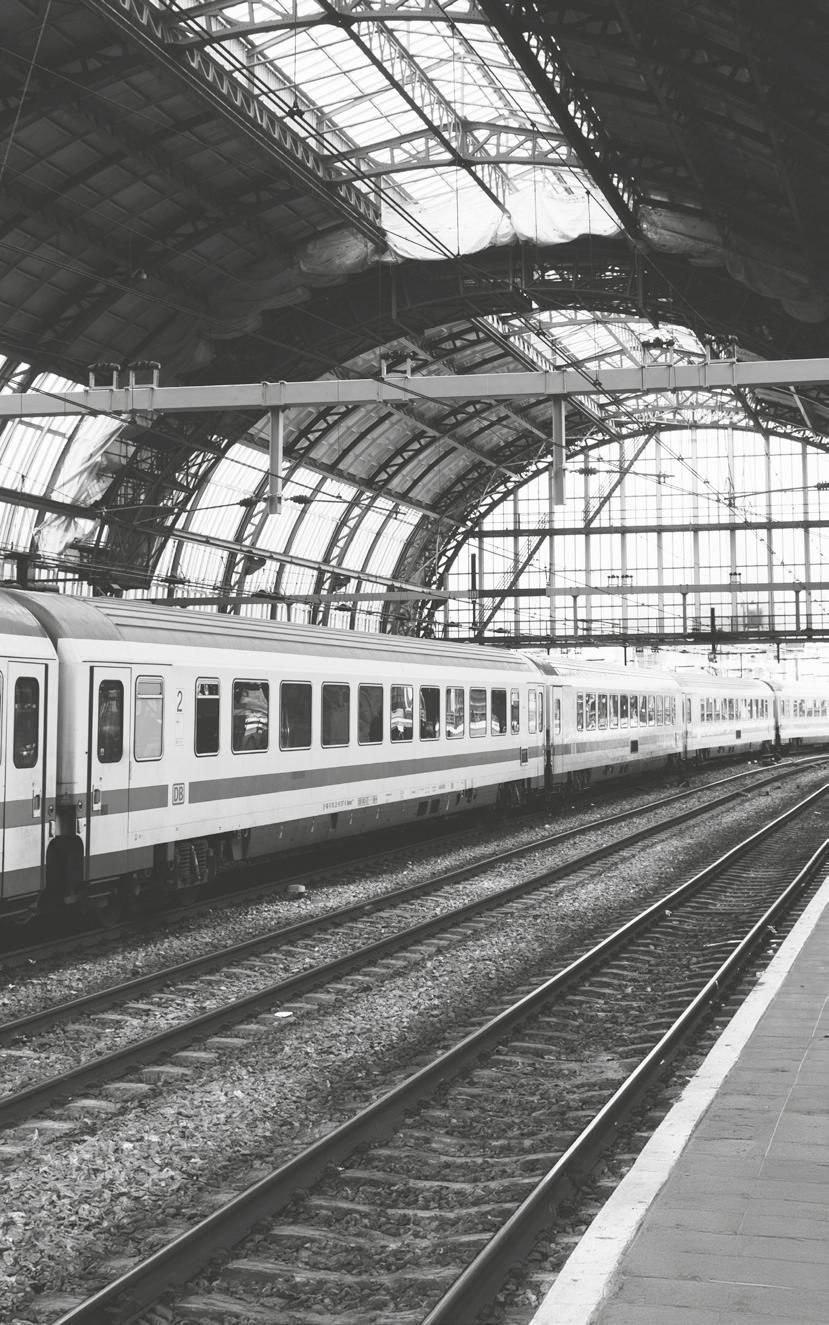
Marina Vanni



»Somos una especie en viaje. No tenemos pertenencias, sino equipaje« »We are a species in transit. We don’t have belongings, but luggage«
–» MOVIMIENTO« , JORGE DREXLER (URUGUAYAN SONGWRITER)
You meet someone new. They smile, they ask what your name is. You choose to share the sequence of letters or characters your family gave you, or the one you inherited from generations centuries ago, or the nickname you carefully gave yourself. You might adapt your name to foreign ears, eliminating syllables or simplifying sounds unique to your mother tongue. Or you might try to teach them how to pronounce it correctly, two or three attempts perhaps, to bring your cultures closer.
But this is not the trickiest part of the introduction. The trickiest part comes next.
»Where are you from?«
The question seems simple. In most cases, the first instinct would be to mention a clearly delimited, easily identifiable piece of land usually recognised as a state, one in many territories in an official list.
The real answer is more complex.
There is only so far back that you can trace your roots. There is somewhere you feel a greater sense of belonging. There is a reason why no one speaks quite like you.
Suddenly, the places that shaped you, the permanent and temporary homes, the cross-continental journeys, the routes between local stations, the little red pins on the map, the stamps in the passport, the village where your relatives live, the cities you walked and made your own, the flats you reluctantly or lovingly shared, the landscapes you admired, they all form the bigger picture.
Suddenly, the languages you are fluent in and those you struggle with, your noticeable accent, your distinct dialect, your slang, your pauses, the melody in your voice, your cadence and breath, they all take on new meaning.
Identity ceases to be geographical coordinates and becomes a compass, a spectrum of past and present lives.
My constellation is as intricate as yours. I am Spanish on my mother’s side, Italian on my father’s, yet deeply Latin American, born in the southern tip of the world: Argentina; a child of the metropolitan suburbs, agnostic but raised Catholic, becoming more German every day as I spend my time living in Berlin; that girl who fell in love with Anglophone authors and now can only write songs in English.
My eyes are brown – chances are high that yours are too – and with these eyes I try to see and understand the world, a view filtered and altered by every person I have met, every word I read, and every ground I set foot on.
Identity is movement. It is the horizon that guides us, although we can never grasp it.
»Identity ceases to be geographical coordinates and becomes a compass, a spectrum of past and present lives.«
For some, a shifting identity poses a threat. They think in terms of compartments, limits, enmity, feuds, frontiers. In their speeches, they tell a one-sided story. A story wrapped in barbed wire, as simplified as it is desperate; an attempt to divide and conquer.
Those who fear migrants do not fear people. They fear change.
They speak as if we were numbers, costs, inconveniences, static definitions in the dictionary, cardboard figures on a board game. As if we were not all in perpetual transformation, flowing, itinerating, being carried like droplets of water.
They speak of migration as if it was the exception, instead of the rule. As if their great-grandparents did not seek new destinations in search of greener grass; as if their grandparent’s recipes and verses had not been passed on from mouth to mouth, from town to town; as if their parents did not see the borders of countries being redrawn and rewritten hundreds of times.
They fail to understand that what remains still, dies.
Migration is what brought us here. It was not the goal, but the journey.
In his song, Drexler says:
»Yo no soy de aquí
Pero tú tampoco
De ningún lado del todo
De todos lados un poco«
»I am not from here
But neither are you
Not entirely from nowhere
And a bit from everywhere«
You meet someone new. You smile, you ask what their name is. It’s so different from yours; it sounds beautiful. You both had a long trip, but you finally made it to the Alps. You are not from Alpbach, but in a way, you both are.
After all, we are travellers. We don’t have belongings, but luggage.

Argentine-Spanish writer, editor, and communications specialist with more than 8 years of experience, including work in journalism for international media outlets such as cNN and Latin Counsel. Member of the FAN Committee (FANc). Three-time EFA scholarship holder, session's moderator, EFA Challenges 1st prize winner (Team »Solarity«) and Speaker's Night speech contest winner.

»My participation in Alpbach in Motion made me a true believer in the impact of the European Forum Alpbach (EFA) as an inspirational place to win minds and souls in order to shape a positive future for Europe in our dayto-day lives.«
—GEORG KOPETZ, MEMBER OF THE EXECUTIVE BOARD AT TTTECH, AIM ALUMNUS AND FOUNDING MEMBER OF THE ALPBACH CIRCLE
The European Forum Alpbach connects decision-makers with youth, bringing together thinkers from various fields. The EFA community sparks ideas for a strong European future. Would you like to be part of this inspiring cause?
Support our Talent Development Programme!
»Alpbach's Talent Development programme is a rare but much-needed opportunity for young, climate-aware voices to shape the discussion on the future of Europe's place in the world.«
—SIMON ILSE, HEAD OF GLOBAL UNIT FOR HUMAN SECURITY, HEINRICH BÖLL STIFTUNG
»Supporting the Talent Development Programme through scholarships not only allows us to contribute to the development of future leaders but also enriches our company with fresh perspectives and innovative ideas.«
—EVELIN POLAT, CO-CEO, REMUS
The Talent Development Programme at the European Forum Alpbach allows over 500 students, young professionals, and changemakers to attend a unique programme that shapes their lives and Europe's future.
As a partner, you may help select candidates and specify the profiles of beneficiaries you would like to support, creating an invaluable talent pool. Partners will find various ways to engage with the scholarship holders. At the EFA Talent Forum, companies can position themselves as attractive employers, while scholarship holders explore their potential in an ever-changing job market.
Join the Alpbach Circle!
The Alpbach Circle unites committed friends and supporters of EFA’s purpose who want to empower young individuals and strengthen EFA’s independence.
We would love to hear from you! Please send your inquiry to Dagmar Hengl, Senior Stakeholder Manager Private and Corporate Donors: dagmar.hengl@alpbach.org.
Donations of €3,000 or more from individuals and €12,000 or more from companies are welcome. All donations are tax-deductible and voluntary.
The European Forum Alpbach brings together young people, innovative minds, policymakers, business leaders, and civil society actors from around the world, fostering new perspectives and ideas for a strong and democratic Europe. These achievements are possible thanks to our generous partners, who are the key to our success.
Our work is supported by private and corporate donors, grantmaking foundations, corporate sponsors and public institutions. Partnering with the European Forum Alpbach enhances your organisation’s purpose and builds a valuable network.
Our partners enable us to host critical discussions, helping influential
individuals and institutions make informed, forward-thinking decisions. By supporting these exchanges, they shape Europe’s learning and decision-making processes.
Faced with ongoing crises such as wars, cost of living issues, climate disasters and growing political and social polarisation in Europe, our partners’ backing fortifies Europe’s resilience and unity. Their support is crucial in allowing us to address the challenges of our time. The success of the European Forum Alpbach is a testament to their dedication and collaboration, allowing us to continue making significant contributions to Europe’s future. We deeply appreciate their support.
»We
would like to use the European Forum Alpbach to discuss feasible paths to a climateneutral future together with politicians, businesses and, above all, bright young minds. Only by pulling together we can give the planet and our children a chance.«
—CLEMENS HASELSTEINER, CEO OF STRABAG AG












Arthur D. Little
Austrian Startups
AVl List
bErGErecotrail
Börsianer
Finders & Company
Frauenthal Holding AG
Gebrüder Weiss
Humanocare
I.E.C.T. Hermann Hauser
Krieglstein & Company
Lenzing Papier GmbH
Mayr-Melnhof Karton
Miba
mtms Accreditation
MyAbility
Porr
Privatquelle Gruber
Oesterreichische Kontrollbank Aktiengesellschaft (OeKb)
Schachinger Logistik
Schindler Attorneys
Schoeller Bleckmann Oilfield Equipment
Sheconomy Speedinvest
Sprenger Gerstbauer Consulting GmbH
TGW Logistics Group GmbH
UNIQA Insurance Group AG

Ashoka Berndorf Privatstiftung
Camera di Commercio di Trento
Central European University
Chamber of Commerce of Bolzano/Bozen
Club Alpbach Steiermark Dark Matter Labs
Dr. Éva Kahán Foundation
European Capital of Democracy
European Cultutral Foundation
European Region Tyrol South Tyrol Trentino Founders Pledge Friends of Europe
Gemeinde Alpbach
Global Parliament of Mayors
Granat King Baudouin Foundation
Klima Biennale Wien Lung Yingtai Cultural Foundation Polisphere Political Capital Politics for Tomorrow Schwarzman Scholars
Sigma Squared Society the female factor Treehouse Giving (Alessandra Bravi & Sebastian Heinzel) Vienna Design Week
VIENNA ShorTS – International Short Film Festival



Wirtschaftskammer Tirol
Dr. Strohmayer Foundation
Peter Bartos
Claudia Garuti
Martin Grüll
Guntard Gutman
Fredrich Jergitsch
Georg Kopetz
Peter Kunz
Ewald Nowotny
Franz Rauch
Alois Steinbichler

In 2024, we are facing the moment of truth. A series of parliamentary elections across member states, alongside the European elections themselves, will chart the course for the Union’s future. But that’s not all: the US presidential elections are casting their shadows ahead. At this critical juncture, we must stand up for democracy, freedom, justice and a united Europe.
As the Main Partner of the European Forum Alpbach, we are dedicated to exploring this moment of truth and discussing its potential impacts. Join us in shaping the #MOMENTOFTRUTH. See you in Alpbach.